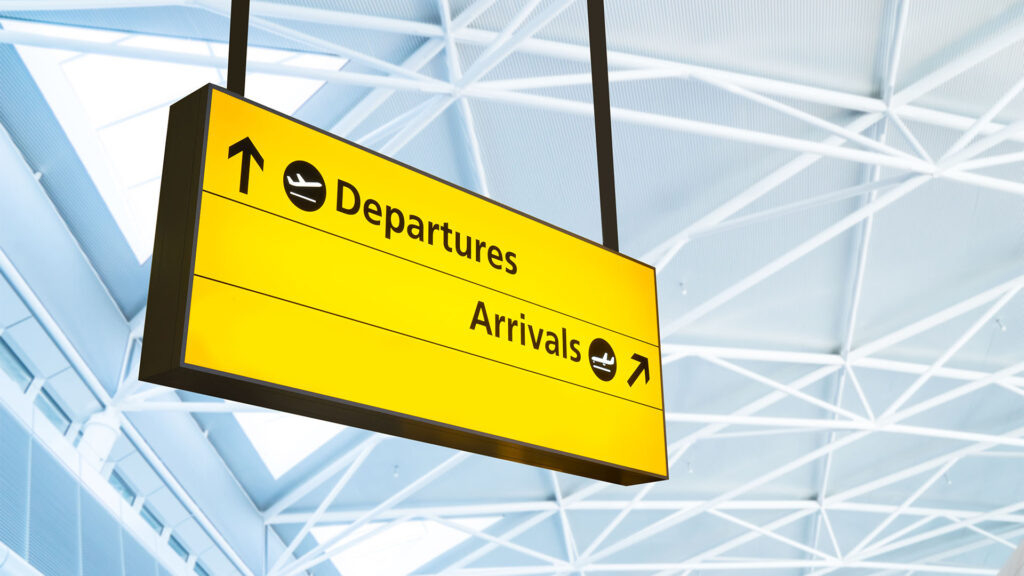Airlines are preparing for the end of the “revenge travel” surge by cutting ticket prices to fill surplus seat capacity as the two-year post-pandemic travel boom transitions to a more uncertain outlook.
Carriers such as Ryanair and Emirates reported record profits last year, driven by strong passenger demand and high ticket prices, which helped offset rising costs for fuel, labor, and aircraft.
However, Ryanair sent shockwaves through the European aviation industry on Monday by warning that airfares would be “materially lower” in the summer months, following a 15 percent year-on-year decline in the spring.
Chief executive Michael O’Leary stated that Europe’s largest airline by passenger numbers is grappling with weaker-than-expected consumer spending, and that recent attempts to raise prices have faced “resistance” from passengers.
Many airlines have been forced to lower ticket prices to fill their aircraft in recent months, marking a sharp shift from the period of high fare increases following the end of pandemic lockdowns when passengers were eager to travel and the industry faced a shortage of aircraft.
“Customers are going back to basics,” said Güliz Öztürk, chief executive of Turkish airline Pegasus, at the Farnborough Air Show this week, adding that the industry should brace for a period of “normalization” as the post-pandemic “revenge travel” phenomenon unwinds.
Air India chief executive Campbell Wilson concurred that demand patterns were “always going to normalize” following the “egregious imbalance between supply and demand post-Covid.”
Stronger results on Wednesday from Europe’s second-largest airline, easyJet, which reported a sharp rise in profits and indicated stable ticket prices for the summer, show that the gloom is not consistent across the sector.
However, Ryanair’s dominance in the European market—operating roughly double the number of flights as easyJet—means that heavy discounting by the Irish carrier could likely force other short-haul market competitors to follow suit.
EasyJet’s performance raised “more questions than it answers: a gap of this magnitude between Europe’s two largest point-to-point airlines is unusual,” analysts at Bernstein said.
Ryanair’s warning came after Lufthansa indicated it would struggle to break even this year due to pressure on yields, a measure of average ticket prices that considers passenger numbers and distance flown.
North American airlines have also been reducing prices to fill their planes after laying on too many seats in the domestic market this summer.
Air Canada on Tuesday cut its profit guidance, citing a “lower yield environment.” US budget carrier Spirit Airlines warned in May that “significant pressure” on yields would continue into the third quarter after a surge in capacity in the US domestic market.
Larger carriers are affected too, although executives say the oversupply of seats will ease by the end of August.
Andrew Nocella, chief commercial officer of United Airlines, told investors last week that while demand was strong, “capacity growth was just so significant that it pressured yield.”
Ryanair’s results sparked a sell-off in European airline shares as the world’s largest air show began in Farnborough near London on Monday, although a partial recovery followed easyJet’s earnings on Wednesday.
Many airline bosses at Farnborough were confident of absorbing any hit to fares and said the wobbles in demand had not been broad-based.
Virgin Atlantic chief executive Shai Weiss said demand on the carrier’s routes across the Atlantic remained strong, particularly in premium cabins and from US customers.
However, he added: “I do see a bit of weakness in the third quarter, in consumers out of the United Kingdom. It is no surprise to any of us living in this country: cost of living, uncertainty, change of government, and so forth.”
Luis Gallego, chief executive of British Airways owner IAG, noted that even where there had been softness in yields on highly competitive routes, such as those between European destinations, they were still above pre-pandemic levels.
Cracks have largely come in the short-haul market in Europe and the US, and in economy class, with longer trips and more expensive flights in business or first-class less affected. Airlines remain confident that demand for travel is still strong enough to keep air fares well above 2019 levels and sustain earnings.
Christian Scherer, chief executive of the commercial aircraft division at Airbus, the world’s largest planemaker, acknowledged that the company had seen “some signs of declining yields” but stressed that it was “too early to say whether this is a slowdown, whether it’s anecdotal or structural.”
“In the US, we have seen the early signs,” he added, but noted that the company’s customers, which include easyJet and Wizz Air, “wish they could have airplanes quicker.”
One executive pointed to the recent cooling in UK inflation and wage growth as signs the industry was reflecting a broader economic picture, as the era of high inflation draws to a close.
The travel boom of the past two years has led airlines to race into ordering aircraft, resulting in a record backlog of new planes and raising concerns these could flood the market just as demand for travel wanes.
Tufan Erginbilgiç, chief executive at aerospace and defense company Rolls-Royce, played down concerns that manufacturers would be increasing output just as airline yields were starting to fall, predicting that supply chain problems would last for at least another two years.
The industry’s fundamentals were positive, he said, with strong passenger growth expected, while the airline industry remained “highly competitive” and “every airline will be in a different place.”

